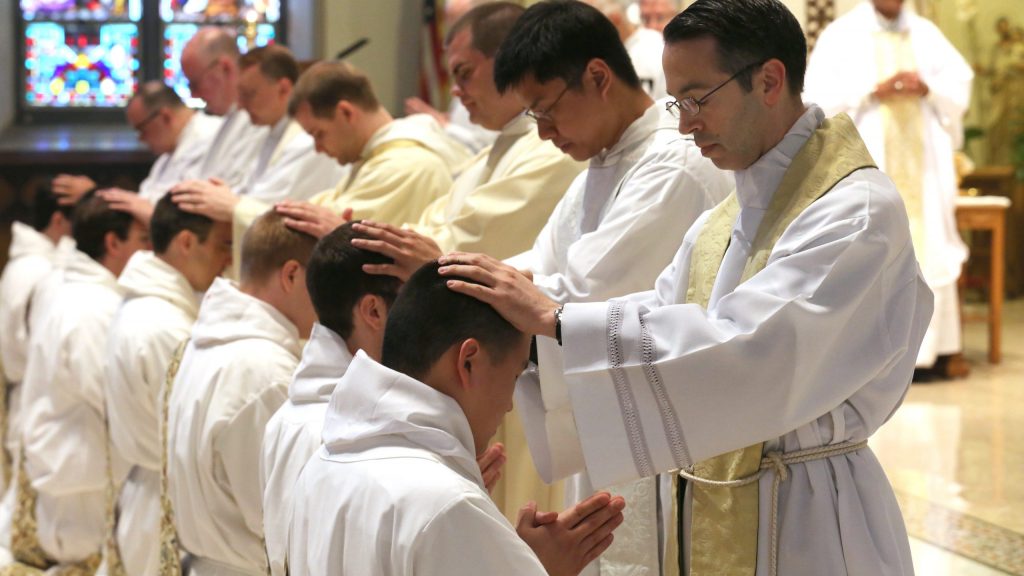Like St. Joseph who had other plans for his life, but lovingly embraced his role as Jesus' foster father, a priest assigned to a new parish cannot impose his own ways on that community, Pope Francis said.
At times, even with the best intentions, priests can "sometimes end up getting lost" and have a "tendency to 'grab' and 'possess' what happens to us, rather than welcoming it primarily as it presents itself to us," the pope said in prepared remarks March 18 to students and faculty of Rome's Pontifical Belgian College.
A community where a new priest is assigned, he explained, has "its own history, made up of joys and wounds, riches and small miseries, which cannot be ignored in the name of ideas and personal pastoral plans that one cannot wait to apply."
"This is a risk we can fall into. The new parish priest must first love the community, freely, just because he has been sent to it; and by loving it, he slowly will come to know it in depth and be able to help set it on new paths," he said.
Members of the college met with the pope to commemorate the 175th anniversary of the institution's founding. St. John Paul II resided at the college in the mid-1940s while studying theology in Rome.
According to the Vatican, the pope chose to speak directly with the college's students and faculty rather than reading the speech, which he handed to them.
In his prepared remarks, the pope noted the church's March 19 celebration of the feast of St. Joseph, who is also the patron saint of the Pontifical Belgian College.
St. Joseph, he said, set aside "legitimate personal plans" out of love for Mary and Jesus, even though the situation was "very different from the vision of family life that he might have wished for but who were all the more cherished and loved by him."
In order to care as St. Joseph cared, priests must love those entrusted to them with tenderness and place the good of their flock above their own, he added.
"Guardianship is an interior attitude that leads us never to lose sight of others, judging from time to time when to withdraw and when to be close, but always maintaining a vigilant, attentive and prayerful heart," the pope said.
"It is the attitude of the shepherd, who never abandons his flock, but places himself in a different position with respect to it according to the concrete needs of the moment," he said.
The pope also said priests must not be "'dreamers' in the sense of someone with his head in the clouds, detached from reality," but instead to dream like St. Joseph and look beyond what they see with "a prophetic gaze" that can recognize God's plan.
"St. Joseph was able to see in Mary and Jesus not only a young bride and a child: he always saw in them God's action, God's presence," he said.
"For priests, in the same way, it is necessary to know how to dream of the community one loves, not limiting oneself to wanting to preserve what exists -- preserving and safeguarding are not synonymous!" Pope Francis said.
"Instead, they must be ready to start from the concrete history of people in order to promote conversion and renewal in a missionary sense, and to make grow a community on the move, made up of disciples guided by the Spirit and 'compelled' by the love of God," he said.

